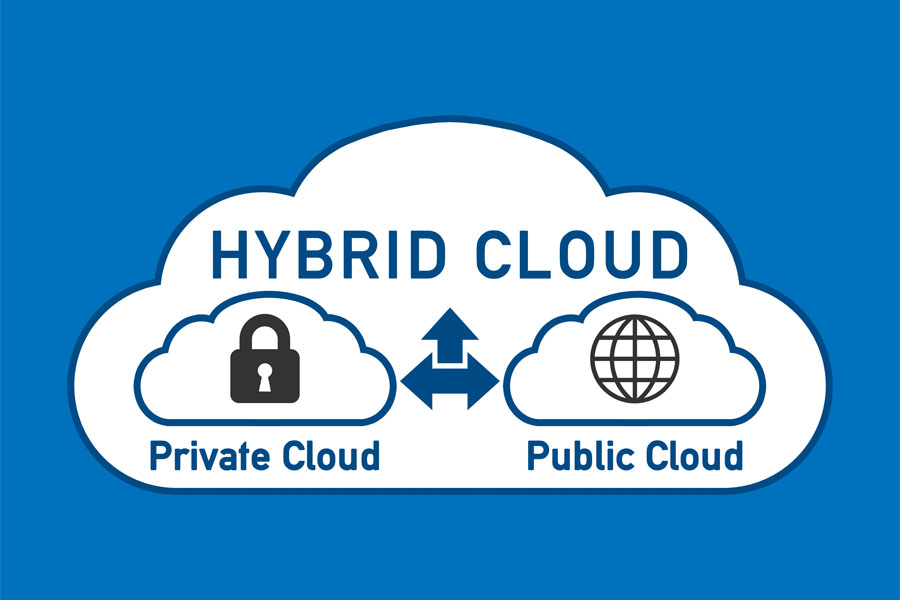The e-commerce sector has experienced rapid expansion and changes due to the inclination of consumers and organizations toward online shopping. That’s why to support and advance e-commerce platforms, efficient data management and storage are essential. Adopting hybrid cloud storage has become a crucial approach for online businesses because there are a lot of perks associated with this system. In this post, we will discuss the prime benefits of using a hybrid structure of cloud storage solutions in the e-commerce industry.
A Scalable Working Infrastructure
Hybrid cloud storage provides e-commerce firms with a scalable working infrastructure by effortlessly fusing the advantages of both public and private cloud environments. This unique mix enables firms to manage demand variations effectively, accommodate rapid development, and maximize resource use.
- Dynamic Resource Allocation: The number of visitors on e-commerce websites changes over the day, the week, or the year. That’s why with the help of this hybrid storage solution, businesses can assign resources flexibly in response to shifting demand.
- Elastic Scaling: Elastic scaling is a hybrid cloud storage feature that enables e-commerce companies to add or remove storage resources as necessary without interfering with running processes. With this elasticity, the platform can instantly modify its storage capacity to match shifting demands. It guarantees a seamless user experience and averts any performance bottlenecks.
- Load Balancing: This cloud storage facilitates load balancing between cloud environments. It helps in ensuring high availability and minimizes website slowdowns or crashes. The platform can prevent clouds from becoming overburdened by uniformly distributing incoming traffic between public and private clouds.
- Database Management: In addition to managing website traffic e-commerce companies must maintain huge databases with product data, user profiles, and transaction records. Thanks to this multi-cloud storage firms can scale their databases to handle growing data volumes. Also, because of its scalability the platform can easily handle orders, manage inventories, and make tailored product suggestions.
- Global Reach and Content Delivery: By utilizing hybrid cloud storage e-commerce firms can use public cloud CDNs for effective content distribution to customers around the world. CDNs cache and serve website content from servers that are closer to end users to reduce latency and speed up page loading times.
Seamless Integration and Data Mobility
The hybrid cloud solution allows for easy transfer of data and applications across public and private cloud environments. It provides e-commerce enterprises with seamless integration and data mobility.
Data Synchronization
E-commerce companies frequently use many platforms to conduct business such as web storefronts, mobile apps, and social media channels. Hybrid storage solutions ensure data synchronization between these systems since it permits real-time updates in all contexts. With these methods, customers’ preferences, shopping carts, and order histories stay in sync when they interact with the platform.
Data Migration and Disaster Recovery
Data mobility is essential for e-commerce enterprises while moving from on-premises storage to cloud settings or between different cloud providers. This multi-cloud storage streamlines effective data migration that provide firms with a seamless changeover with minimal impact on corporate operations. Moreover, this data mobility also helps disaster recovery methods by providing data replication and backup across several cloud regions. It helps in assuring data resilience and business continuity.
Multi-Cloud Strategy
Hybrid storage solutions allow e-commerce companies to implement a multi-cloud strategy while utilizing the advantages of various cloud service providers. Businesses can avoid vendor lock-in and select the finest services for certain needs by diversifying their cloud provider portfolios.
Content Delivery Networks (CDNs)
E-commerce companies can leverage public cloud-based CDNs for practical content delivery with the help of this hybrid storage. CDNs cache and serve website content from servers that are closer to end users to reduce latency and speed up page loading times. The platform’s accessibility and user experience are improved by this integration.
Third-Party Integrations
Online-based companies frequently interact with external services including marketing tools, delivery companies, and payment gateways. That’s why a hybrid cloud data solution facilitates these connections by enabling data sharing and synchronization between the e-commerce platform and other applications.
Better Measures for Security Fortification
Hybrid data storage combines the benefits of private and public clouds. It closes potential security gaps and improves overall data protection. These protective measures provide e-commerce enterprises with greater security fortification measures.
- Customized Security Policies: With this storage, online businesses can customize security rules to suit their unique requirements. They can put in place specialized security features in their old environments. It includes more stringent access controls, data encryption, and intrusion detection systems.
- Isolation of Sensitive Data: Using this cloud storage e-commerce companies can isolate critical client data, like payment and personal information in their private cloud or on-premises infrastructure. This is because it reduces the risk of unwanted access or data breaches by separating sensitive information from other information.
- Encryption as a Standard: Hybrid storage solution combines the benefits of private and public clouds. It closes potential security gaps and improves overall data protection so that e-commerce enterprises can get benefits from greater security fortification measures.
Read Also: Data Center Networking: A New Normal for Growing Businesses
Summary
Hybrid cloud storage is emerging as a revolutionary force in the fast-paced world of e-commerce. It provides organizations with scalability, data resilience, increased security, cost efficiency, and useful insights. With this cloud technology, e-commerce companies can adapt to changing client needs, manage previously unheard-of traffic surges, and maximize the value of their data. It also helps them in maintaining a competitive advantage in this always-changing digital world of Internet business.






